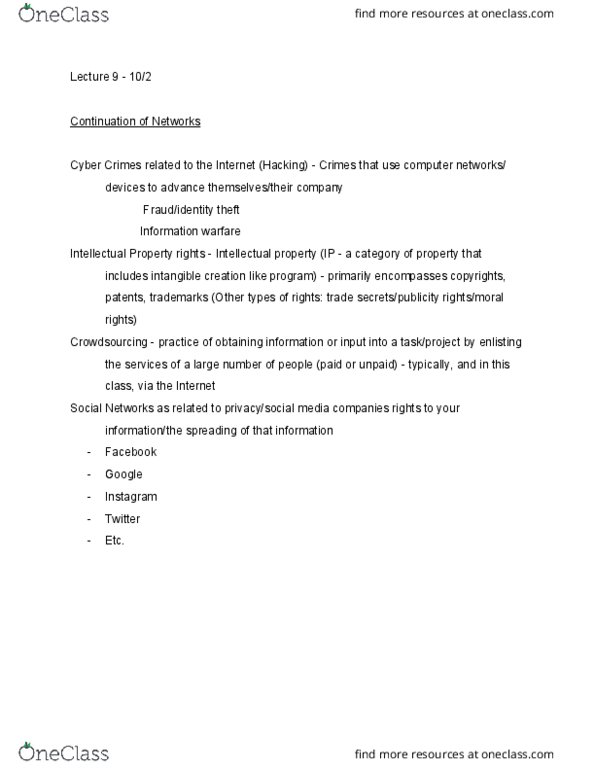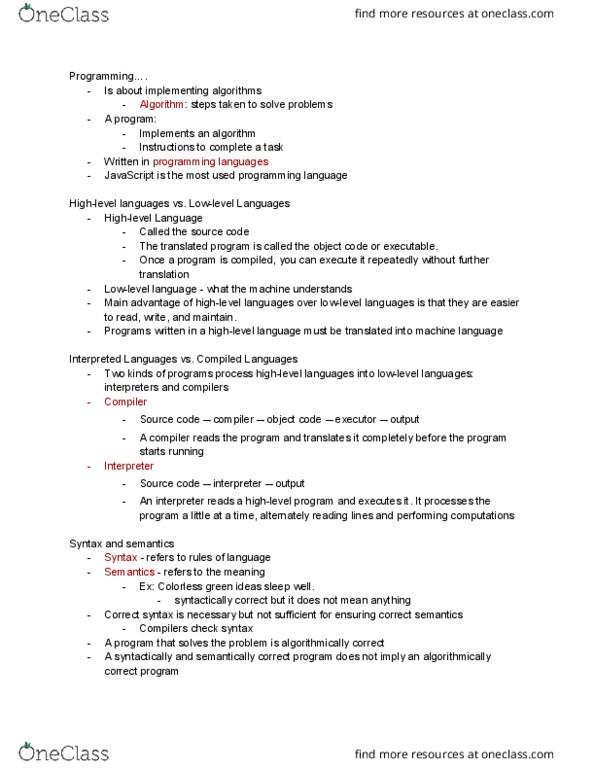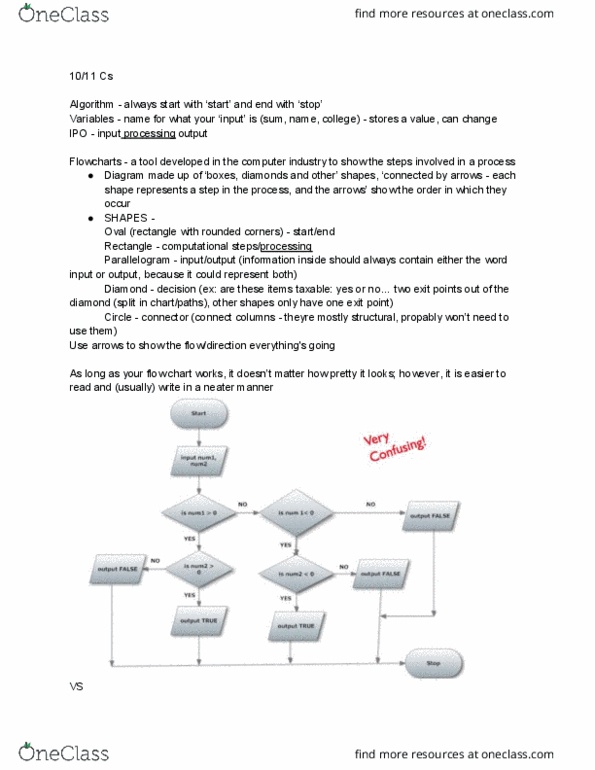01:198:110 Lecture 11: Lecture Notes - Programming
01:198:110 verified notes
11/28View all
Document Summary
The translated program is called the object code or executable. Once a program is compiled, you can execute it repeatedly without further translation. Low-level language - what the machine understands. Main advantage of high-level languages over low-level languages is that they are easier to read, write, and maintain. Programs written in a high-level language must be translated into machine language. Two kinds of programs process high-level languages into low-level languages: interpreters and compilers. Source code compiler object code executor output. A compiler reads the program and translates it completely before the program starts running. An interpreter reads a high-level program and executes it. It processes the program a little at a time, alternately reading lines and performing computations. Syntax - refers to rules of language. Ex: colorless green ideas sleep well. syntactically correct but it does not mean anything. Correct syntax is necessary but not sufficient for ensuring correct semantics. A program that solves the problem is algorithmically correct.




